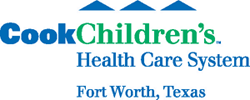Iodine I 131 Metaiodobenzylguanidine, Combination Chemotherapy, and Radiation Therapy in Treating Patients Who Are Undergoing an Autologous Peripheral Stem Cell or Bone Marrow Transplant for Relapsed or Refractory Neuroblastoma
| Status: | Archived |
|---|---|
| Conditions: | Brain Cancer |
| Therapuetic Areas: | Oncology |
| Healthy: | No |
| Age Range: | Any |
| Updated: | 7/1/2011 |
I-Metaiodobenzylguanidine (MIBG) With Intensive Chemotherapy and Autologous Stem Cell Rescue for High-Risk Neuroblastoma
RATIONALE: Radioactive drugs, such as iodine I 131 metaiodobenzylguanidine, may carry
radiation directly to tumor cells and not harm normal cells. Drugs used in chemotherapy,
such as carboplatin, etoposide, and melphalan, work in different ways to stop the growth of
tumor cells, either by killing the cells or by stopping them from dividing. Radiation
therapy uses high-energy x-rays to kill tumor cells. An autologous peripheral stem cell or
bone marrow transplant may be able to replace blood-forming cells that were destroyed by
chemotherapy and radiation therapy. Giving iodine I 131 metaiodobenzylguanidine and
combination chemotherapy with an autologous peripheral stem cell or bone marrow transplant
may allow more chemotherapy to be given so that more tumor cells are killed. Giving
radiation therapy after an autologous peripheral stem cell or bone marrow transplant may
kill any remaining tumor cells.
PURPOSE: This phase II trial is studying how well giving iodine I 131
metaiodobenzylguanidine together with combination chemotherapy and radiation therapy works
in treating patients who are undergoing an autologous peripheral stem cell or bone marrow
transplant for relapsed or refractory neuroblastoma.
OBJECTIVES:
Primary
- Determine the response rate in patients with relapsed or refractory neuroblastoma
treated with iodine I 131 metaiodobenzylguanidine (^131I-MIBG) and combination
chemotherapy comprising carboplatin, etoposide, and melphalan followed by autologous
bone marrow or peripheral blood stem cell transplantation and radiotherapy.
Secondary
- Determine the hematopoietic and nonhematopoietic toxicity of this regimen in these
patients.
- Determine the tumor self-absorbed radiation dose (TSARD) in patients with measurable
soft tissue lesions treated with this regimen.
- Correlate the TSARD with tumor response in patients with measurable residual soft
tissue disease treated with this regimen.
OUTLINE: This is a multicenter study. Patients are stratified according to risk (poor-risk
group [mixed or no response to induction therapy or progression during or after induction
therapy] vs good-risk group [partial response after 4 courses of induction therapy]) and
kidney function at study entry (glomerular filtration rate [GFR] ≥ 100 mL/min vs GFR 60-99
mL/min)
- Stem cell harvest: Patients undergo a peripheral blood stem cell harvest or bone marrow
harvest provided they have an adequate number of cells available. At least 2 weeks
later, patients proceed to iodine I 131 metaiodobenzylguanidine (^131I-MIBG) and
combination chemotherapy.
- 131I-MIBG and combination chemotherapy: Patients receive ^131I-MIBG IV over 2 hours on
day -21, carboplatin IV continuously on days -7 to -4, etoposide IV continuously on
days -7 to -4, and melphalan IV over 1 hour on days -7 to -5.
- Stem cell infusion and filgrastim (G-CSF): Three days after completion of chemotherapy,
patients undergo transplantation of either stem cells or bone marrow on day 0. Patients
also receive G-CSF subcutaneously or IV over 1 hour once daily beginning on day 0 and
continuing until blood counts return to normal.
- Radiotherapy: Once blood counts return to normal, patients undergo radiotherapy to
primary and metastatic sites that have not received previous irradiation over 12 days
beginning after day 42.
After completion of study treatment, patients are followed for 2 years and then periodically
thereafter.
PROJECTED ACCRUAL: Approximately 50 patients (40 low-risk patients and 8-10 high-risk
patients) will be accrued for this study.
We found this trial at
14
sites
3333 Burnet Avenue # Mlc3008
Cincinnati, Ohio 45229
Cincinnati, Ohio 45229
1-513-636-4200

Cincinnati Children's Hospital Medical Center Patients and families from across the region and around the...
Click here to add this to my saved trials
Click here to add this to my saved trials
1405 Clifton Road Northeast
Atlanta, Georgia 30322
Atlanta, Georgia 30322
(404) 785-6000

AFLAC Cancer Center and Blood Disorders Service of Children's Healthcare of Atlanta - Egleston Campus...
Click here to add this to my saved trials
450 Brookline Ave
Boston, Massachusetts 2215
Boston, Massachusetts 2215
(617) 632-3000

Dana-Farber/Harvard Cancer Center at Dana-Farber Cancer Institute Founded in 1997, Dana-Farber/Harvard Cancer Center (DF/HCC) was...
Click here to add this to my saved trials
University of Chicago One of the world's premier academic and research institutions, the University of...
Click here to add this to my saved trials
Click here to add this to my saved trials
Childrens Hospital Los Angeles Children's Hospital Los Angeles is a 501(c)(3) nonprofit hospital for pediatric...
Click here to add this to my saved trials
725 Welch Road
Palo Alto, California 94304
Palo Alto, California 94304
Click here to add this to my saved trials
1600 Divisadero Street
San Francisco, California 94115
San Francisco, California 94115
888.689.8273

UCSF Helen Diller Family Comprehensive Cancer Center UCSF’s long tradition of excellence in cancer research...
Click here to add this to my saved trials
4800 Sand Point Way Northeast
Seattle, Washington 98105
Seattle, Washington 98105
(206) 987-2000

Children's Hospital and Regional Medical Center - Seattle Seattle Children
Click here to add this to my saved trials
Click here to add this to my saved trials
Click here to add this to my saved trials
Click here to add this to my saved trials
Click here to add this to my saved trials


